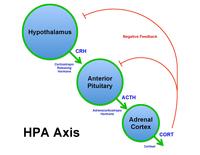
Photo from wikipedia
BACKGROUND Thiamethoxam (TMX) represents the second generation of neonicotinoids that has been widely applied in agricultural activities, while how TMX alters the behavior of Apis cerana, an important native honey… Click to show full abstract
BACKGROUND Thiamethoxam (TMX) represents the second generation of neonicotinoids that has been widely applied in agricultural activities, while how TMX alters the behavior of Apis cerana, an important native honey bee species in China, is not clear. We carried out three independent experiments to study the impact of acute oral treatment of 20 μL TMX at concentrations of 2.4 ppb (0.048 ng/bee) and 10 ppb (0.2 ng/bee) on the homing, flight, learning acquisition and short-term retention ability of A. cerana. The homing ability was assessed by the catch-and-release method, the flight ability was assessed by flight mills, and the learning acquisition and short-term retention were evaluated by the proboscis extension response method. RESULTS When treated with 10 ppb of TMX, bees had a significantly higher average homing time, mean flight velocity, flying distance, and flying duration than the control, whereas 2.4 ppb concentration did not cause any significant effect on homing or flight ability. Bees treated with either 2.4 ppb or 10 ppb TMX had significantly lower learning acquisition and short-term retention ability. CONCLUSION Results suggest that acute oral exposure to 10 ppb of TMX altered the short-distance homing time, flight ability, and learning acquisition and short-term retention ability. Our study also highlights the concern that acute oral exposure to a low concentration of 2.4 ppb could have consequences on the behavior of A. creana. Those multiple sublethal alterations on A. cerana's behavior indicate that TMX are likely having complex but negative consequences on bee health in the field. © 2019 Society of Chemical Industry.
Journal Title: Pest management science
Year Published: 2019
Link to full text (if available)
Share on Social Media: Sign Up to like & get
recommendations!